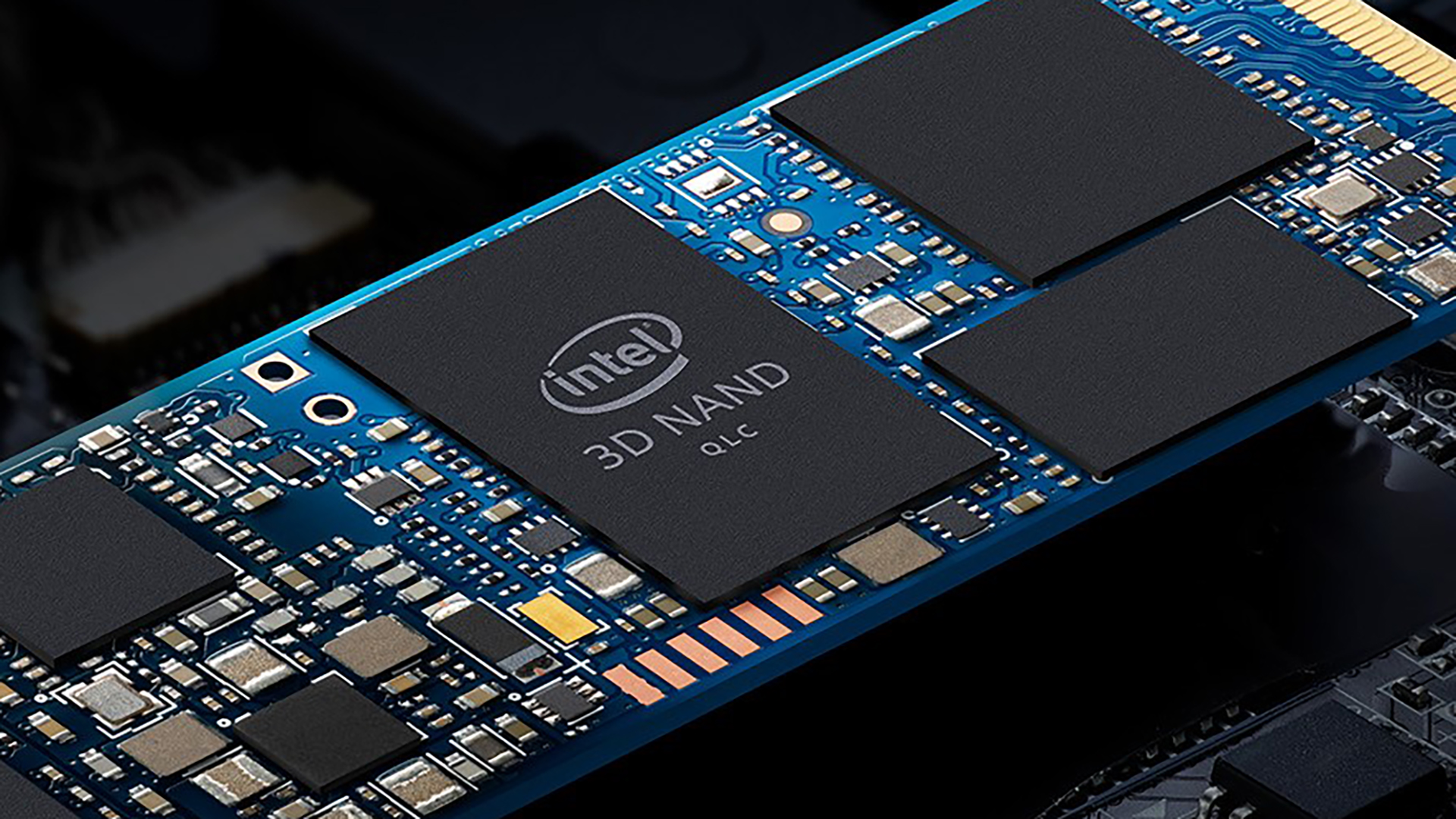Intel sells off its SSD and memory business to SK Hynix in drawn-out $9bn deal
SK Hynix will get the keys to Intel's entire memory business. Eventually.

Intel has agreed to sell its memory and storage business to SK Hynix for $9bn, or 10.3tr KRW. Intel's memory business includes all of its solid-state drives, NAND flash, and even a fab in northeastern China, which will all be transferred to the South Korean memory giant in stages through to 2025.
The deal was announced on Intel's newsroom early this morning for us Brits, and outlines what will be shifting over to the NAND manufacturer over the course of the next few years. Intel's NAND SSD business, including related employees and IP; the NAND fabrication facility in Dalian, China will be the first transferred over, in return for a $7bn payment, expected in 2021 following approval. Following that, IP related to the design and manufacturing of NAND flash wafers, R&D employees and the Dalian fab workforce will be transferred on receipt of the final $2bn in 2025.
It sure sounds like the Dalian fab workforce is collateral for the deal.
Intel retains the wafer manufacturing capability of the fab until the closing of the deal in 2025. So while SK Hynix will serve up a significant sum, it will not receive the business in whole until 2025. Intel also keeps hold of its Optane business, that which it mostly sold off to US memory manufacturer Micron in 2019.
Intel's NAND business in total represented $2.8bn in revenue for Intel, and contributed $600m in operating income over the past six months. SK Hynix is hopeful of at least $1.2bn in revenue yearly from the purchase—once the deal is complete, it's still got some time to go until then.
The deal appears to be one by SK Hynix to gain traction against world memory manufacturing leader, Samsung. As such, it feels like this deal plays into Intel's hands a little more than it does the Korean memory manufacturer.
SK Hynix is down 1.73% in response to the deal, but is slowly creeping back to its previous share price of 86,000-87,000 KRW.
Keep up to date with the most important stories and the best deals, as picked by the PC Gamer team.
"I am proud of the NAND memory business we have built and believe this combination with SK Hynix will grow the memory ecosystem for the benefit of customers, partners and employees," Bob Swan, Intel CEO, says. "For Intel, this transaction will allow us to further prioritize our investments in differentiated technology where we can play a bigger role in the success of our customers and deliver attractive returns to our stockholders.”

Best CPU for gaming: the top chips from Intel and AMD
Best graphics card: your perfect pixel-pusher awaits
Best SSD for gaming: get into the game ahead of the rest
Intel's SSDs, from its high-performance drives to its cheaper QLC drives, have numbered our recommendations for gaming SSDs over the years as they've offered decent performance and reliability in their price brackets. Some high-performance drives were a little too lofty for our gaming needs, but the lineup will be missed if SK Hynix shifts away from the consumer space.
Many of Intel's high-end drives were built using its Optane technology, which it's keeping a loose grasp of for now. The shift in QLC NAND production will be mostly missed from Intel's—the company reported in February that its Dalian fab had produced 10 million QLC 3D NAND drives to date.
It's worth noting many of Intel's QLC drives were also accelerated by Optane, so it's unlikely the exact SSD lineup will be able to remain the same under SK Hynix's watch, unless a deal has been struck for supply.
With its own lineup of consumer-facing drives, such as the SK Hynix Gold P31, we remain hopeful that SK Hynix has a grand plan for Intel's SSDs and we'll see them competing for our best SSD for gaming guide in the near-future. Fingers crossed.

Jacob earned his first byline writing for his own tech blog. From there, he graduated to professionally breaking things as hardware writer at PCGamesN, and would go on to run the team as hardware editor. He joined PC Gamer's top staff as senior hardware editor before becoming managing editor of the hardware team, and you'll now find him reporting on the latest developments in the technology and gaming industries and testing the newest PC components.

